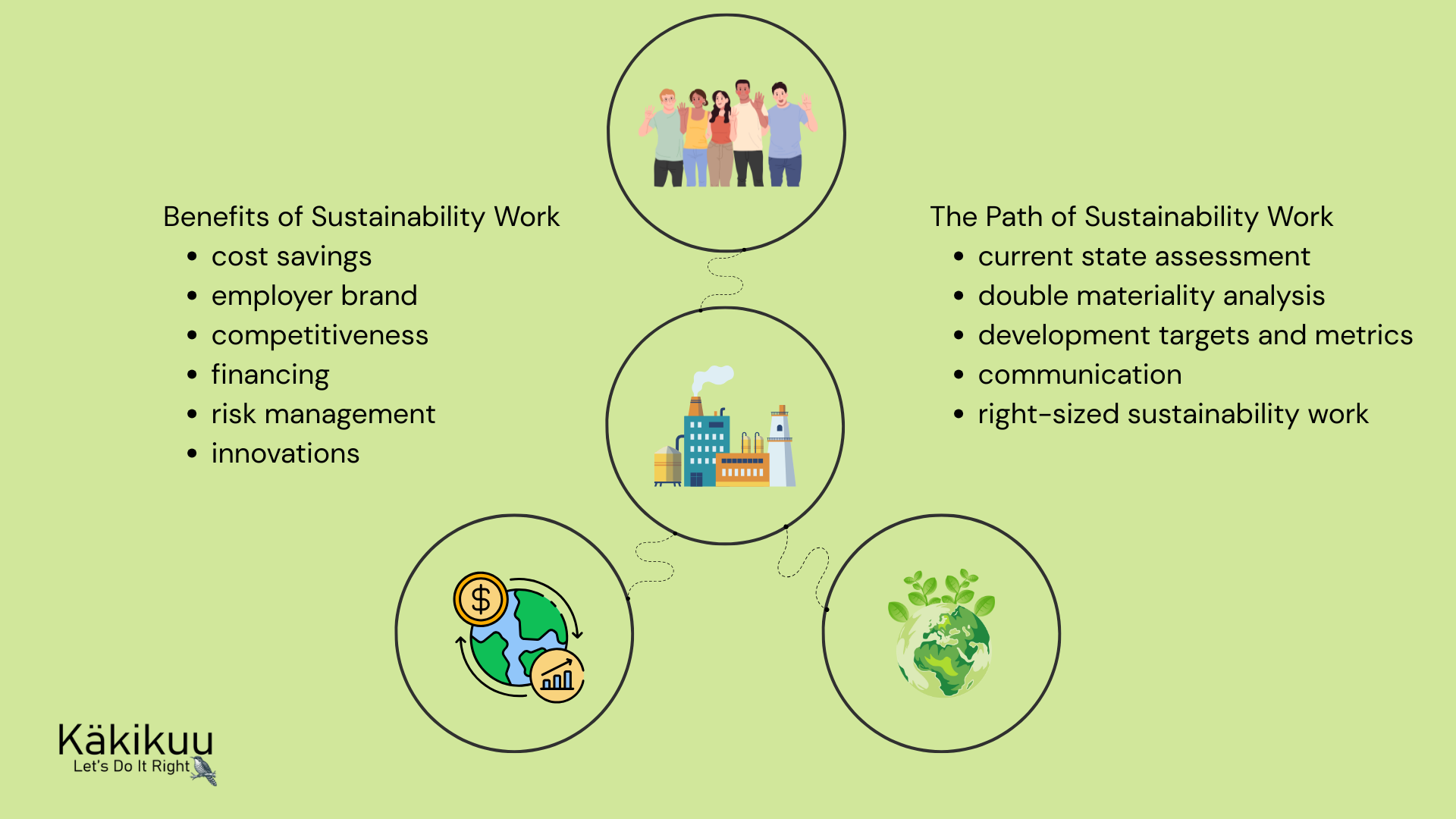According to Statistics Finland, there were approximately 230,000 solo entrepreneurs in Finland in 2023. A solo entrepreneur is defined as a person who runs a business without any employees, meaning they are both the owner and the sole worker in their company. Solo entrepreneurs account for nearly 9% of all employed persons. Solo entrepreneurship is a significant factor in the national economy and a source of economic activity.
Solo entrepreneurship is a way of life that offers many the opportunity to express themselves, manage their own time, and create something new. It comes with a wealth of possibilities but also challenges—such as financial risks, ensuring adequate social security, or maintaining boundaries between work and personal life. What drives a person to choose this path, and what might it mean for them?
Who becomes a solo entrepreneur—and why?
People who choose solo entrepreneurship are typically independent, proactive, passionate, and willing to take risks. They often have a clear vision of what they want to achieve and are prepared to work hard to reach their goals and define their own success. Factors such as unemployment, the rise of the platform economy, outsourcing, and the high cost of hiring employees also drive people toward solo entrepreneurship. Motivators may include the desire to pursue a personal business idea, the need for more flexible working hours, or simply the wish to be their own boss.
Often, solo entrepreneurs seek freedom: the freedom to make decisions, the freedom to choose their working hours, and the freedom to decide what kind of work they want to do and how they want to do it. For some, solo entrepreneurship is a chance to follow their passion and focus on what they love and do best. With digitalization and access to global markets, more and more people see solo entrepreneurship as an opportunity to create new income streams and tap into broader possibilities.
In addition, social and cultural shifts—such as the desire to work on something meaningful or the pursuit of a better work-life balance—are significant factors. Solo entrepreneurship can offer a pathway to put these values into practice.
Operating environment for solo entrepreneurs
In the operating environment of solo entrepreneurs, freedom and responsibility are intertwined in a way that demands self-discipline and determination. A solo entrepreneur is solely responsible for all aspects of their business—from planning, production, and marketing to customer service, sales, and financial management. This multidisciplinary role requires broad expertise, a willingness to engage in continuous learning, and the ability to adapt and respond to change.
With the rise of digitalization, solo entrepreneurs have more tools and resources at their disposal than ever before. Networking and collaboration with other entrepreneurs can open up new business opportunities and customer relationships. Sharing knowledge and engaging in dialogue within these networks allows solo entrepreneurs to learn from others' experiences and mistakes, providing valuable insights for improving their own operations. Entrepreneurial networks also offer peer support and can facilitate the sharing of resources and business risks. In reality, few solo entrepreneurs are truly alone. They are often part of a broader ecosystem that supports and strengthens their business activities.
The future in your own hands
The future for solo entrepreneurs is full of opportunities. Digitalization is expanding markets, offering new tools and avenues for growth and innovation. Cloud-based applications enable work independent of time and place, while social media provides abundant possibilities for brand building and targeted marketing. Personalized, responsible, and tailor-made products and services are increasingly favored by consumers, and solo entrepreneurs are in an excellent position to meet this demand with their unique offerings.
Solo entrepreneurs must stay up to date with industry developments, market trends, and emerging technologies. Increasing consumer awareness of sustainability is steering entrepreneurs toward more responsible business models and sustainably produced goods and services. The growing appreciation for products and services that support local economies and communities also presents opportunities for entrepreneurs to stand out and better meet customer needs.
Solo entrepreneurship offers agility and the ability to adapt quickly to changing conditions. Solo entrepreneurs who invest in their own skills, actively network, follow trends, and make effective use of digital tools can expect steady development and a bright future for their business.


